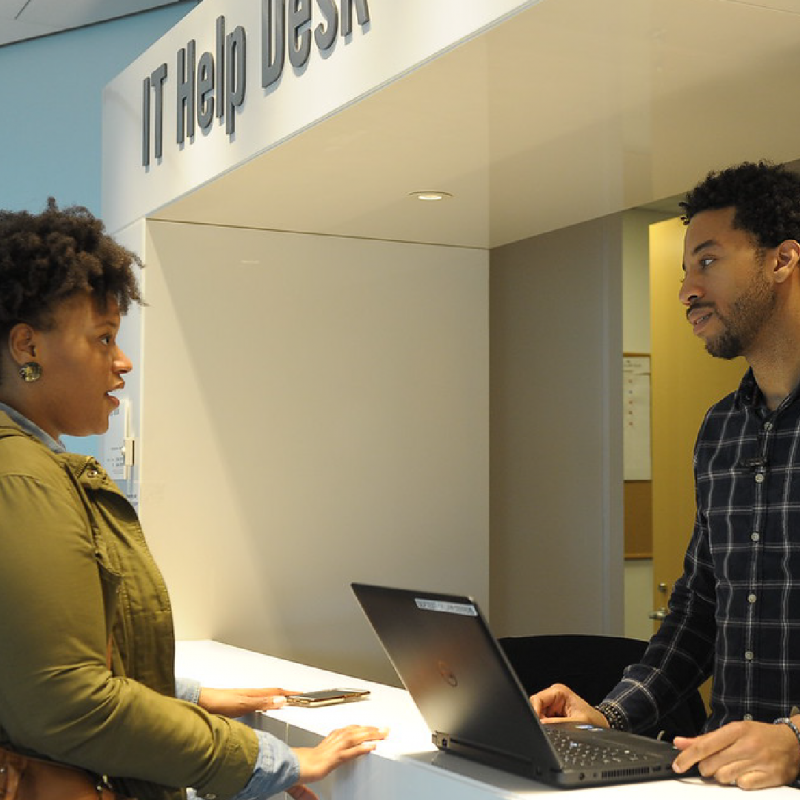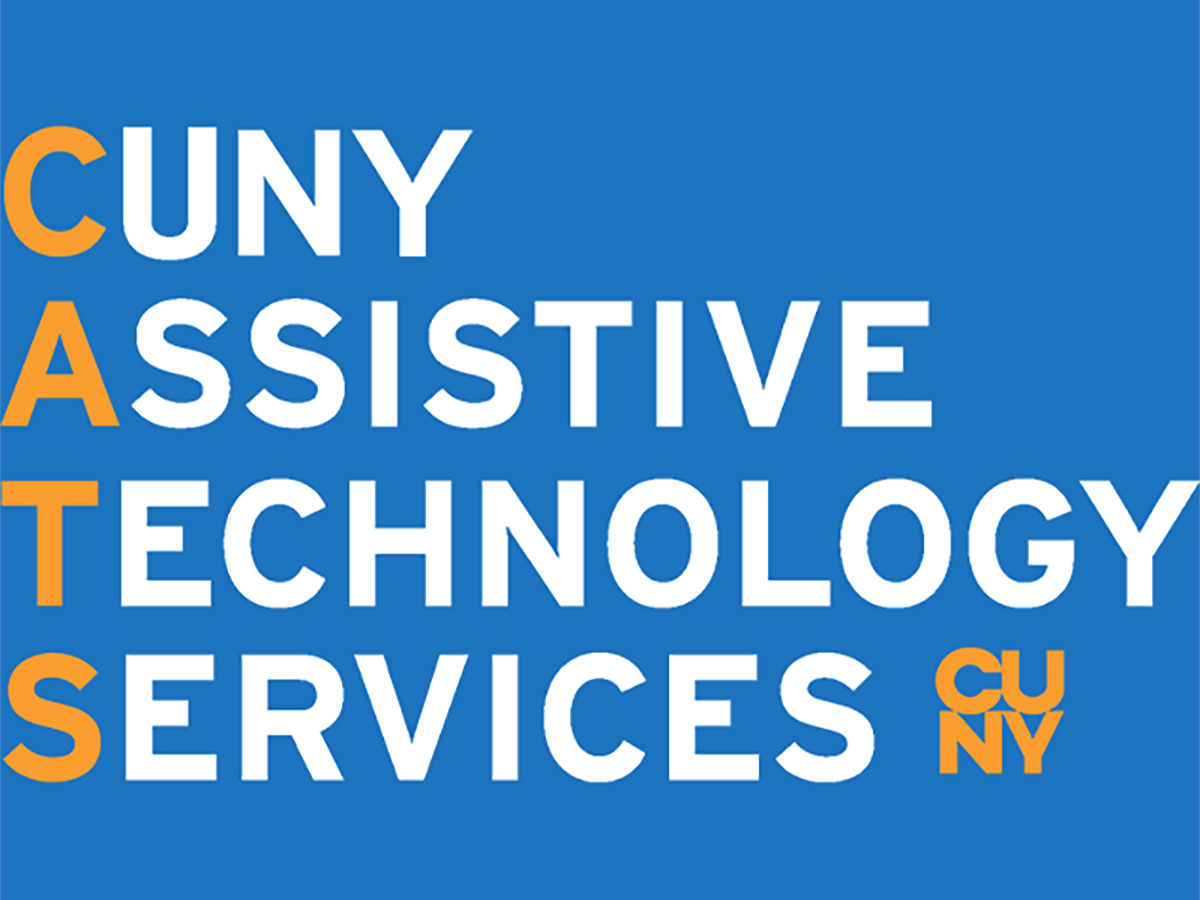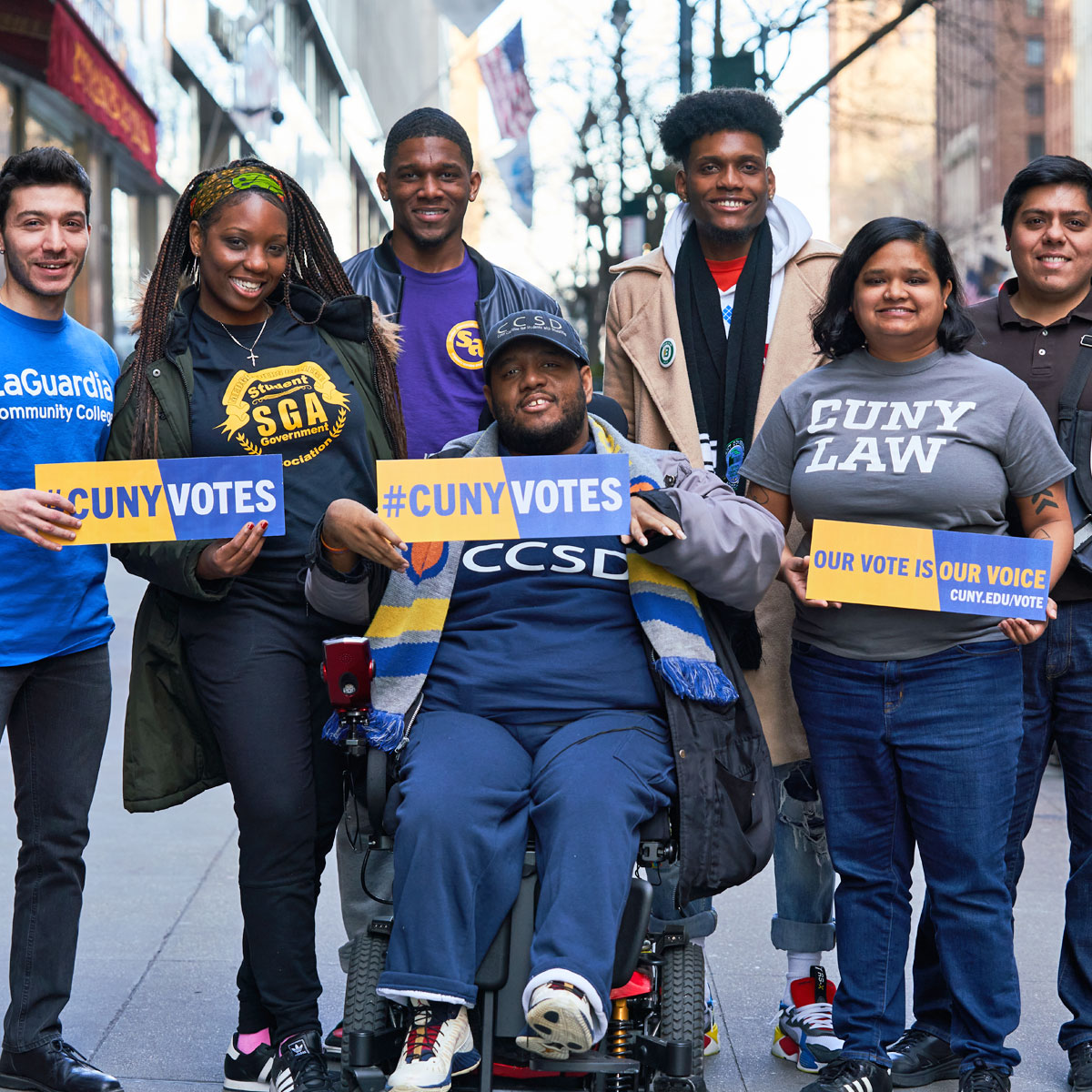We assist any student who may require an accommodation to meet physical or academic needs. It is the student’s responsibility to initiate a request for accommodation, even if the student has previously identified herself/himself as a person with a disability. Each situation is determined on a case-by-case basis and all information is regarded as confidential.
We provide counseling and referrals and arrange crucial auxiliary aids and services, including assistive technology services, note takers, readers, sign language interpreter services, distance learning networks, priority registration, and alternative testing arrangements.
Students may appeal the denial of their request for an accommodation or academic adjustment by filing a complaint with Michael Valente, Chief Diversity Officer.
Initiate Accommodation Request Form
What Documentation to Bring When You Request Accommodations - General Guidelines
Students diagnosed with a disability who request services or accommodations are required to provide appropriate and current documentation.
In the case of multiple disabilities, students must provide documentation for each disability for which accommodations are requested.
Prior documentation, such as an Individualized Education Program (IEP) or a history of receiving accommodations from a former school, does not necessarily validate the need for services or continuation of accommodations at the University level. This history can, however, be attached to the current documentation as part of a comprehensive assessment.
The determination of reasonable accommodations on campus is based on satisfying the documentation guidelines outlined below and a clear demonstration of the functional limitations on the student’s performance in an academic setting. These guidelines apply to all disability types recognized by the ADA.
A qualified professional should conduct the evaluation and provide name, title, and professional credentials, including information about state licensure or certification number.
The evaluation should include the diagnosis (ICD-10 or DSM-IV) and be dated. The evaluation should include the original signature of the professional responsible for the assessment of functioning and must be current.
Disabilities may change in severity over time and documentation should support current accommodation needs.
Recommendations and rationale for accommodations and/or assistive technology must be based on the analysis of the functional impact of the diagnosis. Services, accommodations, and/or assistive technology will be determined on an individual basis upon documentation review and consultation with the disability service professional at each campus.
Insufficient documentation may result in the delay of services and accommodations.
Once your Accommodation Request Form and documentation are prepared, please send to: StudentSupport@Law.cuny.edu
Specific Accommodation Evaluation Guidelines
The evaluation should:
- be conducted by an evaluator with comprehensive training with adolescents and adults with learning disabilities;
- be evaluated within the last three years of high school (for those diagnosed in school);
- include a description of the functional impact of diagnosis and include specifics of how the learning process may be affected by the diagnosis;
- include recommendations and rationale for accommodations and/or assistive technology;
- include test scores to document the nature and severity of the disability;
Adult students not previously diagnosed must provide appropriate documentation as per guidelines for students not previously diagnosed.
Students requesting religious accommodation should contact the Office for Student Affairs to begin an interactive process with the goal of finding an acceptable accommodation. Consistent with New York State Education Law § 224-a, students who are absent from school because of a religious belief will be given the equivalent opportunity, without any additional fee charged, to register for classes or make up any examination, study, or work requirements missed because of such absence on any particular day or days. Reasonable accommodations may include, but are not limited to, flexible arrival and/or departure times, permission to make up a test or lecture, leave or assignment changes, time and/or space to pray, or accommodation relating to appearance or dress.
Read more about CUNY’s religious accommodations policy or email a request for accommodations now.

CUNY IT’s Accessibility Statement
We are committed to providing students with the technology and information needed in accordance with CUNY’s Policy on Equal Opportunity and Non-Discrimination and applicable law. Everyone must be able to acquire the same information, engage in the same interactions, and enjoy the same services with substantially equivalent ease of use.


Voter Registration Assistance
Students requesting accommodation services for disabilities will be offered the opportunity to register to vote and get assistance in filling out forms, if requested. There is no obligation to register, and your decision will have no effect on services provided. Forms are available in room 5- 115, or download a voter registration form from the NYC Board of Elections website.
